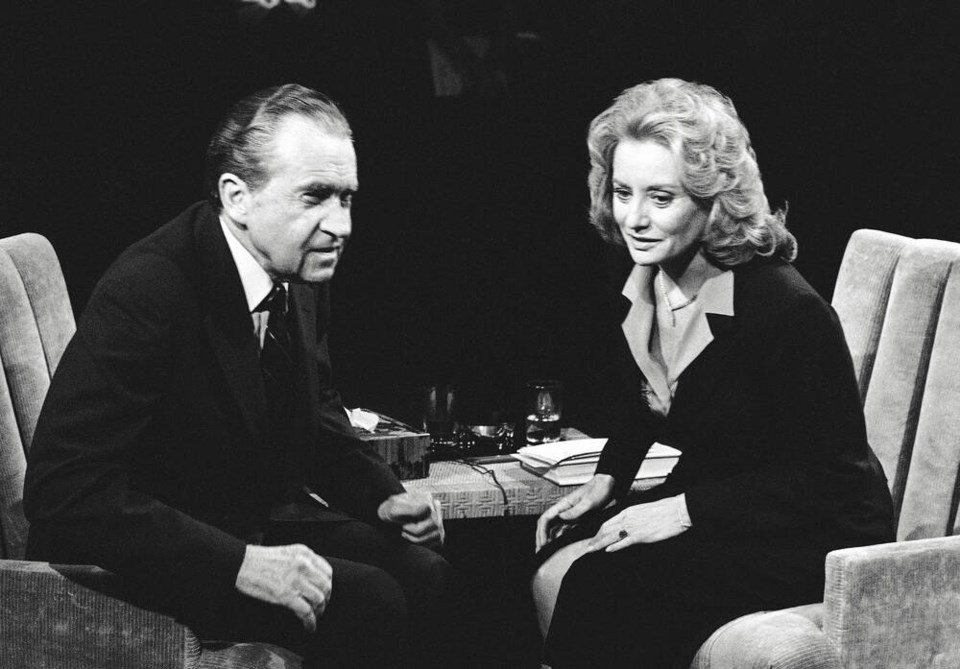I grew up watching Barbara Walters on the newsmagazine show 20/20. I watched all of her high-profile interviews, including the annual “Most Fascinating People” series.
She created space for people to share their stories, to be vulnerable and ultimately relatable on a human level, no matter who they were.
Early in my childhood, I knew I wanted to be a writer and a journalist, and Walters showed me what was possible. She was authentically herself, and not like other women on television.
Walters was someone that I could relate to in a way that I didn’t to other women on television. She was famous and respected for her mind and skills.
As an adult, I listened to Walters’ audiobook Audition. I borrowed the set of several CDs from the Greater Victoria Public Library, and I would listen to them on my computer as I wrote articles.
I’d been an admirer of her work for as long as I could remember, and at that time I was not even aware of everything she had done. The book is 26 hours long, and full of fascinating humble and vulnerable tales of Walters’ life.
Walters was a pioneer among female journalists, and she was strong, fierce and unwavering. These were all characteristics that were not seen as traditionally feminine or accepted as such at that time. Even now, some of those characteristics in women are not as openly accepted as they are in men.
In early December, my daughter and I adopted two kittens, and we each named one. The name I chose was Barbara Walters. This was weeks prior to her passing.
When I chose the name, my daughter said: “Who’s Barbara Walters?”
There is an interesting thing with generational change. Each generation has its heroes, legends and trailblazers. The work of these folks shapes people within the generation, and there is a heavy emphasis on them and their contributions.
I thought of this as I shared what Walters had done. My daughter was interested, but I know she will not share the same level of respect as those of us who have admired Walters’ work.
I also realized that she doesn’t need to.
It’s weird when older generations criticize younger ones for not having the same admiration for things.
When my daughter is 40, she’ll have her own generational heroes — heroes that I may not identify with, and heroes that generations after won’t either.
Instead of trying to force meaning on others, maybe it’s more important to admire the impacts people have had on our lives and experiences.
In 2000, Pearl Jam released its cover of the song Last Kiss. I remember really enjoying the song and playing it often. I was told by an older family member that it was a cover and that I couldn’t really like the song, because I wasn’t fully invested in the original.
While writing this column, I learned the original Last Kiss was by Wayne Cochrane in 1961. The song made it to No. 2 on the charts in 1963, when it was covered by J. Frank Wilson and the Cavaliers.
I didn’t need to know the history from 1961 or 1963 to enjoy the song, and if it’s the 2000 song that I connected with, then that’s how it is.
My daughter is a big fan of Lizzo, whose most recent album features the song Grrrls, which samples the Beastie Boys song Girls from 1987. When I played the Beastie Boys song for my daughter, she thought they were covering Lizzo.
We can appreciate where things come from, but ultimately, we can spend our time enjoying what we like, and letting others do the same.
When young people meet our kittens, “Who’s Barbara Walters?” is their first question. I share a little bit about her, but I know Walters is loved and admired and I don’t worry about trying to convince others to care as much as I do.
>>> To comment on this article, write a letter to the editor: [email protected]


